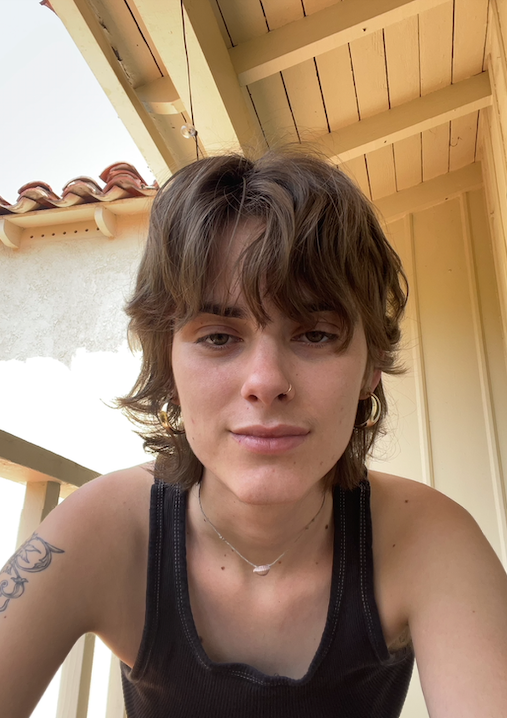
Embodied Joy is an experimental documentary exploring how colonization has impacted gender expression, combined with personal poetry and narrative from my own experiences. I pulled from the knowledge of my chosen family, friendships, and the writing of Leslie Feinberg.
My language is rigid, and so has been my experience, up until college when I began to play with my own experience with gender, being gender nonconforming, and distancing myself from traditional ideas of femininity. I don’t remember knowing any gay or transgender people growing up. I don’t remember seeing them on television or in the books I read. What I do remember is playing make believe, being the prince and rescuing the princess from the forbidden tower that was my bunk bed.
Transgender activist and scholar Leslie Feinberg in the early 90’s interviewed a two spirit poet and writer named Chrystos from the Menominee nation, who spoke about how life before first contact is hard to reconstruct because of the amount of abuse by the christian church. Moreover, they note that “Two-Spiritedness is a rather rough translation into English of that idea,” because “the English language is rigid, and the thought patterns that form it are rigid, so that gender also becomes rigid” (27). Binaries are positioned as rigid, absolute. Western heteropatriarchy and/or binary sex/gender is taught to be the “right” way to do things, leading to the naturalization of settler colonialism (Morgensen, 13). Anyone who disrupts colonial ideals of gender, meaning, masculinity is white, powerful, unfeminine, femininity is white and subservient and unmasculine, is rejecting the logic that founds this country, that whiteness and gender are inherent, that man and woman are fixed identities, that anything outside of these categories is unnatural.
BIO
My name is Tara Blossom, and I am from Berkeley, California. I am graduating from World Arts and Cultures and minoring in Labor Studies. I look forward to working and living in Los Angeles after graduation.